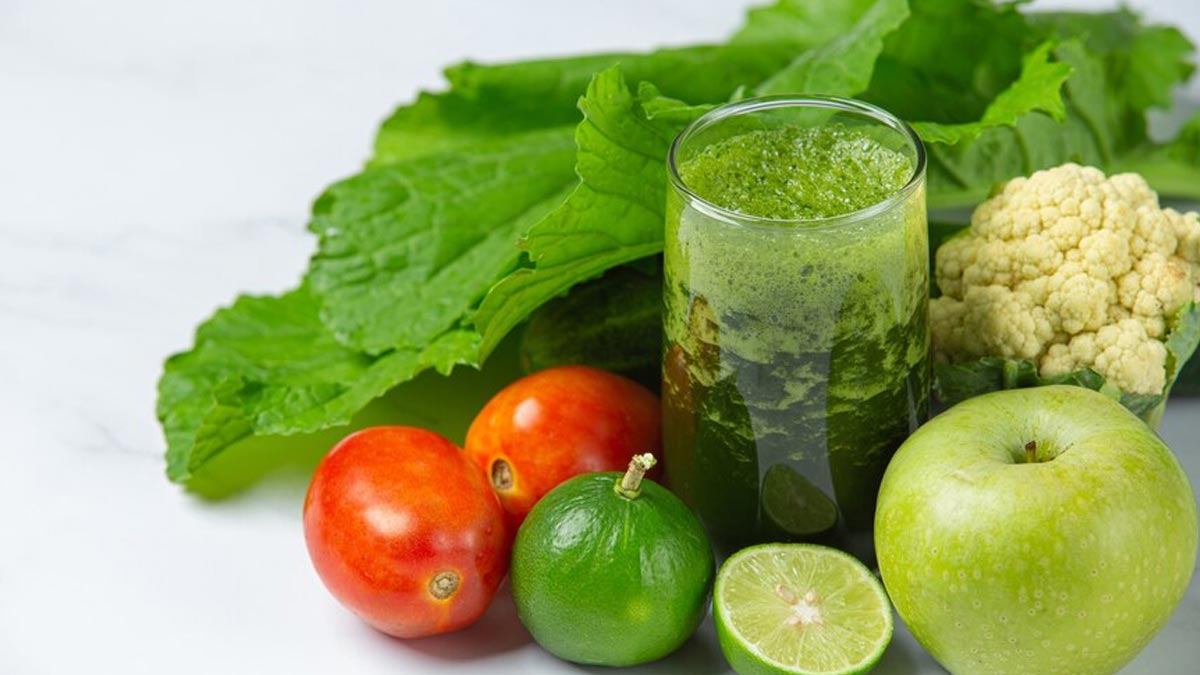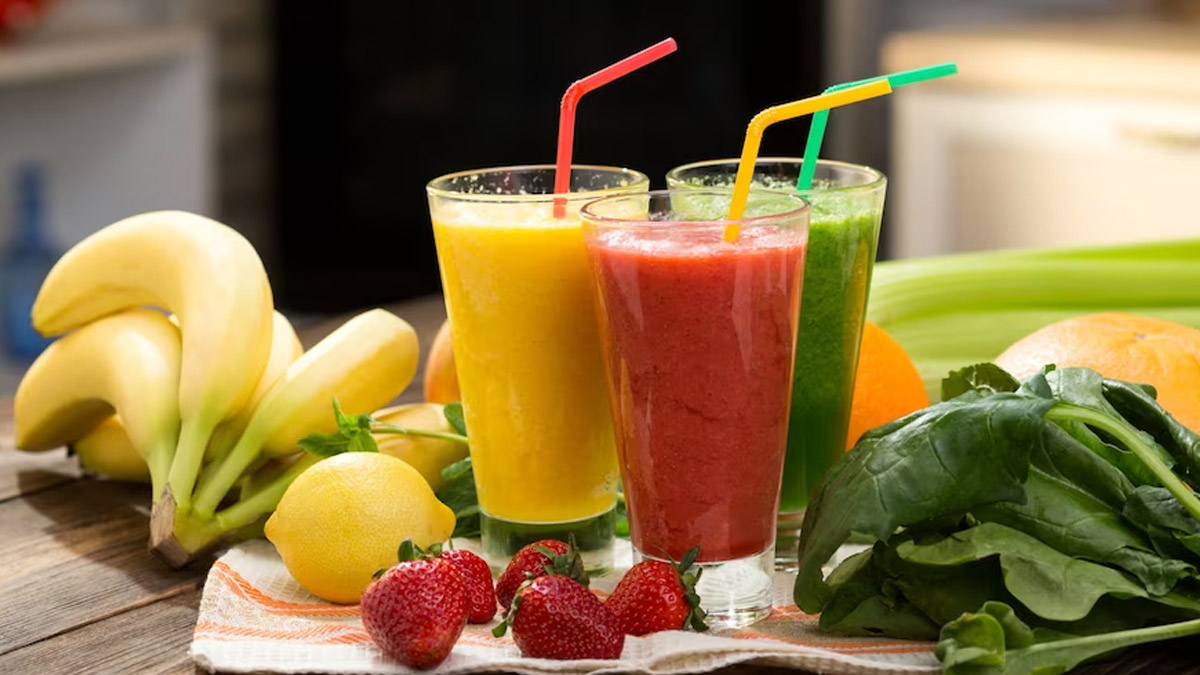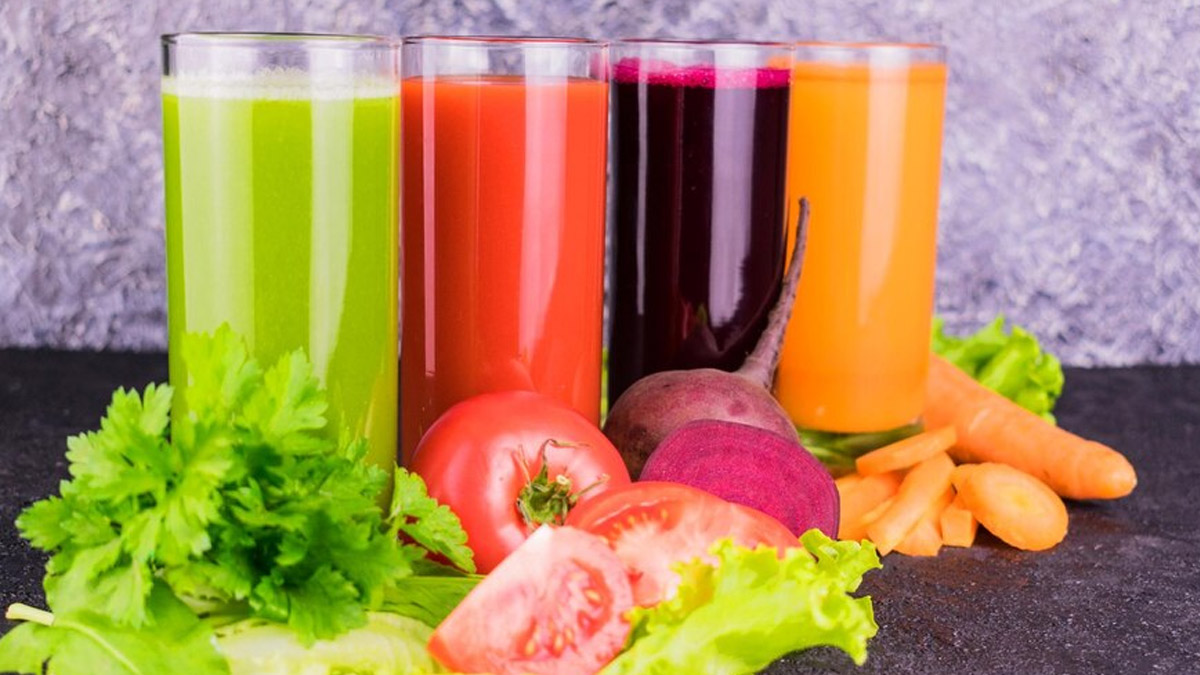
Juicing has become a popular trend for those seeking a quick and convenient way to boost their nutritional intake. However, not all juices are created equal, and blending fruits and vegetables might not be as beneficial as it seems. In a video going viral on Instagram, Dr Dimple Jangda, an Ayurveda Gut Health Coach warned against mixing vegetables and fruits in a juice, stating "When you mix these two, it can lead to delayed digestion, or delayed gastric emptying, or gastroparesis."
According to Johns Hopkins Medicine, gastric emptying means that your stomach is taking too long to empty its contents, forming bezoar, which are big masses of old food. Bezoar can obstruct the stomach and prevent food from passing into the small intestine.
What is Gastroparesis
While it's essential to note that juicing itself may not directly cause this condition, certain combinations of fruits and vegetables might contribute to digestive discomfort for some people.
One of the key factors to consider when juicing fruits and vegetables together is the difference in their digestion times.

This happens because, as Dr Jangda noted, "Fruits require only one hour in the stomach to digest, whereas vegetables require two hours in the stomach for digestion."
Combining these two categories may create an imbalance in the digestive process, potentially leading to issues such as bloating or indigestion.
According to the National Institute of Diabetes and Digestive and Kidney Diseases, the main symptoms of gastroparesis are:
- Feeling full soon after starting a meal
- Feeling full long after eating a meal
- Nausea
- Vomiting
- Too much bloating
- Too much belching
- Pain in your upper abdomen
- Heartburn
- Poor appetite
Also Read: Fruit Juice VS Whole Fruits, Which Is The Healthier Option? Expert Answer

The Importance of Food Combining
Proponents of food combining argue that different food groups require varying digestive environments, and mixing fruits and vegetables can disrupt this harmony.
For example, fruits are primarily composed of simple sugars, which can ferment quickly, while vegetables contain complex fibres that take longer to break down. The clash in digestion times may result in suboptimal nutrient absorption and unwanted digestive discomfort.
Nutrient Absorption Is Key
While both fruits and vegetables offer a plethora of essential nutrients, consuming them in their whole, unprocessed forms might be a more balanced approach:
Whole fruits provide fibre that helps slow down the absorption of sugars, preventing rapid spikes in blood sugar levels. Vegetables contribute vital micronutrients and fibre, promoting a steady release of energy.
Also Read: Is It Healthy To Drink Fruit Juices Everyday? Expert Answers
Juicing can be a convenient way to consume more fruits and vegetables in your diet, but combining them without considering their digestion times may lead to potential issues such as gastroparesis and digestive discomfort. To optimise nutrient absorption and promote overall digestive health, consider consuming fruits and vegetables separately or in a more thoughtful combination. As with any dietary choices, it's essential to listen to your body and consult with a healthcare professional if you have specific concerns or dietary restrictions.
Also watch this video
How we keep this article up to date:
We work with experts and keep a close eye on the latest in health and wellness. Whenever there is a new research or helpful information, we update our articles with accurate and useful advice.
Current Version